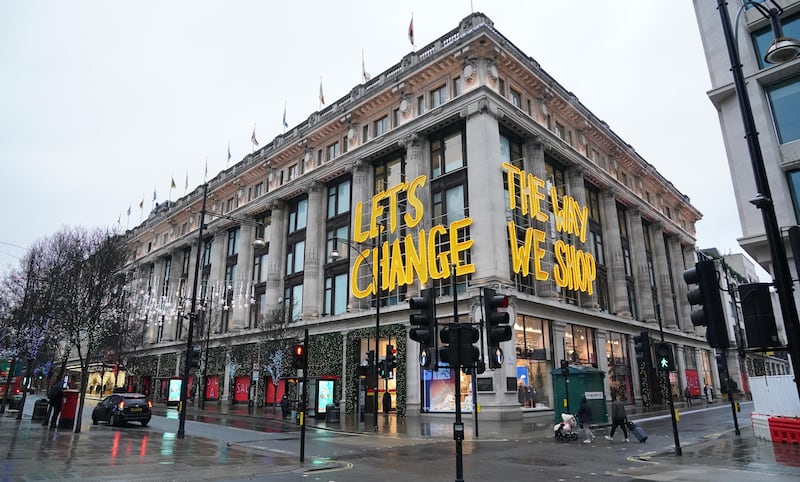The new owners of Selfridges are planning to open an upmarket hotel and serviced apartments as part of a major revamp of its flagship store.
The redesign of the Oxford Street site, which the retailer has occupied for more than 100 years, will include an upgraded food hall.
Selfridges, whose has UK outlets in London, Manchester and Birmingham, was sold by the billionaire Weston family for £4 billion ($5.4 billion) on Christmas Eve to Thailand’s Central Group and the Austrian property company Signa Holding in a joint venture. The companies each have a 50 per cent stake in the venture.
Dieter Berninghaus, executive chairman of Signa, said that adding a luxury hotel and apartments to Selfridge’s flagship store would deliver “significant value upside potential” to the brand.
“The purchase price merely reflects the valuation of the main Selfridges building and its retail utilisation,” Mr Beringhaus said.
He said that they “plan to trade up the food hall”, because that is a core competency of the group, which also owns Swiss luxury outlets KaDeWe and Globus and prides itself on operating the best fine-food delicatessen business in the world.
The concept of a Selfridges hotel is not new, with part of the Oxford Street building still lying empty – it houses a former hotel that shut in 2008 and has since been used only temporarily, such as for an indoor skate park.
The Selfridges sale comes at a difficult time for department stores and the wider retail sector in the UK, which has been hammered by the coronavirus restrictions since the start of the pandemic with a number of key department stores, including Debenhams, being forced to shut.
An August report found that Britain has lost 83 per cent of its main department stores over the past five years, a stark reflection of the fall-out from the Covid-19 pandemic and changing shopping habits.
Almost two thirds of the closed shops are still unoccupied, according to a study from commercial property information company CoStar Group, with about 237 large stores yet to be taken over by a new business
There are now a number of empty units on London’s Oxford Street, just metres away from the Selfridges location, which managed to successfully navigate the pandemic thanks to its trusted formula of continued innovation such as its “greenest ever” Christmas shop in 2020 and allowing weddings to take place in the store.
Selfridges, founded in 1908 by Harry Gordon Selfridge, is also popular with Middle East tourists who traditionally flock to its Oxford Street shop in the summers, as well as its other locations in Manchester, which opened in 1998, and Birmingham, which opened in 2003.
The business was bought by the Canadian businessman Galen Weston for almost £600 million in 2003 and has since expanded to include other department store chains, including Arnotts and Brown Thomas in Ireland, Holt Renfrew in Canada and De Bijenkorf in the Netherlands.
The sale to Central and Signa does not include Holt Renfrew, which will remain with the Weston family.
Central Group is a family-owned company involved in a several industries, from real estate and retailing to hospitality and restaurants. The Chirathivat family had the 20th largest fortune in Asia, worth $12.9bn, according to a ranking compiled in November 2020 by Bloomberg News.
Signa was founded by retail and real estate entrepreneur Rene Benko, who owns or has stakes in some of the world’s most famous properties, including the Chrysler building in New York.













